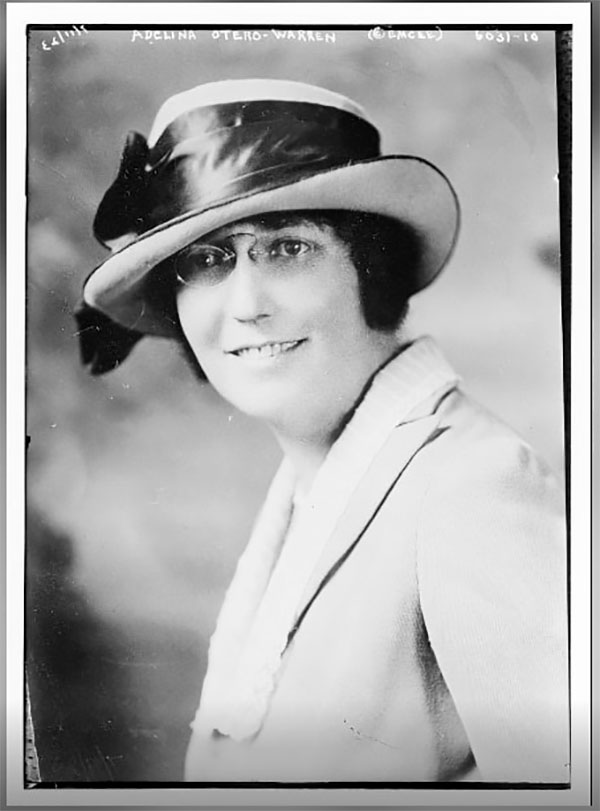As Gandhi affirmed, «Strength does not come from physical capacity. It comes from an indomitable will.» It is precisely this courage in the face of life that many Hispanic women have demonstrated and continue to demonstrate, despite remaining in the shadows.
In ancient times, women used to have recognition, but the Industrial Revolution brought a drastic change, marking a before and after. The labor discrimination they faced was just the beginning of a series of losses, which included their status and social recognition.
The New York shirtwaist strike, known as the «March of the Twenty Thousand» in 1909, was a forceful call for equal pay and fair working conditions. This event marked a public outcry against a prolonged social injustice.
In this atmosphere of women’s struggle, which also had the support of men dissatisfied with this postponement, the «Women’s Suffrage Procession» emerged on March 3, 1913 (the day before the inauguration of President-elect Wilson). Thousands of people joined in protest to march in Washington, D.C. and demand that the 19th Amendment be passed authorizing women’s suffrage. It was not until the end of World War I, on June 4, 1919, that the right of women to vote was passed by the United States Congress. It was ratified on August 18, 1920.
«THE FORGOTTEN AMONG THE FORGOTTEN»
American women were considered «forgotten»; however, in the history of the Women’s Rights Movement, names such as Elizabeth Cady Stanton, Lucretia Mott, Carrie Catt, Susan B. Anthony, Lucy Stone, and Alice Paul, among others, are always remembered. But Hispanic names do not appear.

FORGETFULNESS OR ERROR?
Hispanic women, once again, find themselves forgotten, adding injustice upon injustice. Despite this, they’ve been and continue to be crucial shapers of U.S. history, particularly in the fight for women’s suffrage. Bicultural and bilingual, they actively participated in every stage of the struggle.
Nationwide civic associations, established to this day, attest to their ongoing commitment to various causes. Aurora Lucero-White Lea and Adelina «Nina» Otero-Warren played pivotal roles in persuading Alice Paul and the Congressional Union (later the National Woman’s Party) about engaging Spanish-speaking women in the U.S. On October 21, 1915, they orchestrated the Santa Fe March, bringing together 150 Anglo-Saxon and Hispanic suffragists.
Lucero and Otero recognized that the women’s suffrage cause would resonate with Hispanic women, especially those from border territories like New Mexico, Arizona, Texas, and California.
They knew that, pre-U.S. occupation, women enjoyed more rights under Spanish and Mexican law than under English common law later. Mexican and Spanish law legally recognized women as «persons» with rights such as inheritance, property ownership, work, earning money, litigation, and retaining maiden names upon marriage.
None of these rights were granted to married women under English law, the basis of American legal principles. Despite the Treaty of Guadalupe Hidalgo granting automatic US citizenship to Mexican citizens in Arizona, California, western Colorado, Nevada, New Mexico, Texas, and Utah in 1849 (with the commitment to equal rights), the reality was starkly different—they were swiftly relegated to second-class citizenship.
Mexican-Spanish families suffered substantial land and title losses, forced into agricultural, domestic, and food processing jobs. Women’s lives underwent profound changes during the US occupation, stripping them of rights acquired under Spanish and Mexican legal traditions.
Compelled by necessity, they entered the workforce, receiving salaries in return. Other Hispanic women, like María Guadalupe Evangelina de López, Selina Solomons, Gertrudis «Tules» Barceló, María Amparo Ruiz de Burton, Jovita Idár, Luisa Capetillo, Ana Roqué de Duprey, and Genara Pagán, remain among the forgotten figures in the history of the US women’s suffrage movement.
Pagán faced additional hurdles due to her Puerto Rican citizenship, obtaining US citizenship only in 1917 through the Jones-Shafroth Act. While this granted US citizenship to Puerto Rican women, it didn’t confer statehood or federal voting rights. In 1920, after the 19th Amendment, Pagán revived the women’s suffrage cause, attempting to register to vote but facing rejection.
By 1929, the Puerto Rican legislature extended voting rights to literate women, and in 1935, all Puerto Rican women gained access to the vote through local laws, bypassing federal constitutional reforms.
Post-suffrage, Hispanic women pursued institutional roles, facing new struggles in male-dominated settings. A trailblazer in this conquest was Soledad Chávez de Chacón, the first Latina elected to a state office (secretary of state) in the US. In this month of women’s recognition, it’s timely to resurrect these heroines from obscurity. Reflecting on their responses to adversity emphasizes that the mischaracterized «weaker sex» is strong and powerful, both in the past and today.






















